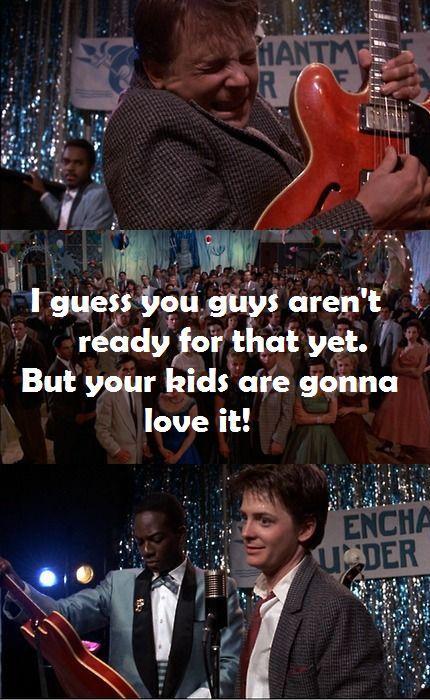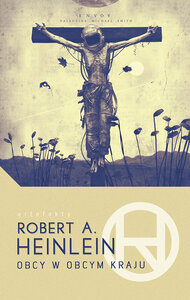Take a photo of a barcode or cover
challenging
slow-paced
Plot or Character Driven:
Character
Strong character development:
Yes
Loveable characters:
No
Diverse cast of characters:
No
Flaws of characters a main focus:
Yes
This book made me want to rip my hair and eyeballs out. Every character was insufferable.

Valentine Michael Smith is a human who inherited Mars. Literal Mars, money Mars, and the psychic powers and culture of the Martians who brought him up. Now he is thrown back among his own people who do not understand him and want his money (and call him Mike Smith–really? I like the name, one of my oldest and dearest friends is called Mike Smith, but the man-god from Mars ought to be called something like Ares or even Valentine or Michael). And he doesn't understand us either, or money or laughing or dying.
The best part of the book was going with Michael on his journey towards "grokking" humanity. "To grok" is a Martian verb meaning to understand so fully that you become one with the thing you are grokking. After all, this is what sci-fi is, looking at humanity's problems from alien (pardon the pun) perspectives in order to try to grok our problems and avoid them: a way of going forward in time to look at the consequences of our current mistakes and events and inventions and thus pleading with the world not to make them. But I digress.
The part I couldn't bear was the last third of the book, which is what took me so long to finish. The book SHOULD HAVE STOPPED after Mike had grokked humanity. Not gone on with "pantheism and free love is the answer to all evil" and Mike setting up a thing which supposedly isn't a religion and is compatible with all religions but really is a religion and I don't at all see how it is compatible with any faith that isn't pantheistic, including Islam and Christian. If Mike was real had really been brought up by Martians and Martians really believed this, then with an open mind I would investigate. But I have a hard time putting up with Heinlein's dated male fantasies.
I have thought hard and come to the conclusion that apart from the psychic powers thing, the logical consequence of Mike's vision in reality is Brave New World. Trust me, read Brave New World as a sequel.

(This book makes me wonder in the shower how humanity would react if we found far sophisticated aliens who were not atheists. The world would go mad.)
As a sci-fi goes, the world-building is dated. A risk which must be run when writing about the future: Heinlein hasn't managed to pull it off. They drive around in flying cars and the world is ruled in One World Order, yet they still smoke constantly and keep animals in cages rather than enclosures and have names for their "new" inventions like stereo-box, and gender roles aren't what they are today.

The characters are fairly well written, especially Mike–except for Jubal, he just won't stop pontificating, for pages and pages. It got tiresome: something of a turn off. And speaking of turn-offs, what was all that jabber about Foster up in heaven working and making annoying habits of fiddling with his halo? This isn't Good Omens! It was totally out of place in the book. So annoying. And the plot was non-existent.
Anyway, on the fence between 2 and 3 stars. Give Heinlein the benefit of the times.
mysterious
reflective
slow-paced
Plot or Character Driven:
Character
Strong character development:
Yes
Loveable characters:
Yes
Diverse cast of characters:
Yes
Flaws of characters a main focus:
Complicated
A very influential work during the counter-cultural movement of the 60s and, having now finally read it, I can see why. I didn't feel it quite lived up to its reputation, but I applaud it for challenging social mores and taboos that are still deeply entrenched in most of our cultures (hence my high rating). There are some boring - at least for me - passages that seem to go on and on with seemingly nothing much going on, but throughout are some very good, albeit dated, ideas and quotable lines, mostly from two characters: the title character, Michael Valentine Smith, and his early mentor, Jubal Harshaw. Overall, I think this is still a very relevant book and, for the most part, the sci-fi classic that it's widely considered to be.
Gripping at times, and explored some interesting ideas about human society, language, religion etc. However, overlong and irritatingly sexist - I expect better from Heinlein.
What a strange book!
The first half was a five star book to me. The second half, more like 2. There were some really clever parts, some interesting commentary and ideas, but so much of it was ... odd. And, if you are familiar with my tastes you know thought it was entirely too long. SO MUCH could have been cut and we would have had the same end result.
The first half was a five star book to me. The second half, more like 2. There were some really clever parts, some interesting commentary and ideas, but so much of it was ... odd. And, if you are familiar with my tastes you know thought it was entirely too long. SO MUCH could have been cut and we would have had the same end result.
There’s a few reasons this doesn’t hold up well for me. One is how antiquated it is now; even as the author tries to straddle back and forth in the Mars man’s interactions with ideologues, even when the pendulum hits the seemingly progressive views, they are woefully, often laughably inadequate. Particularly around queer culture and the overt homophobia there, but also how misogynistic the expression of feminism is and, probably most damning, how monocultural it is.
The foreign man only exists as axiomatic strategy to interrogate western culture. The things the author isn’t interested in simply do not exist, despite the conceit and the progression of plot all but begging some self reflection at shoe-horning all of earth culture as, pretty much just America. It’s also baffling that language isn’t interrogated more, but why should English be, when the author is most interested in a masturbatory trolling of social constructs. He no doubt thought himself really smart at doing so too, since basically the entirety of it could be described as mansplaining every concept being (I very magnanimously label) interrogated”.
There’s a tweet I think about something that went something like, “If your entire personality is giving other people a hard time, know that you are exhausting.” That is how this book reads. It’s almost embarrassing to read, even when it’s good. Like watching a very antiquated dance being performed, even when it’s good it calls attention to itself.
It does have better prose work and dialogue than other master scifi books I’ve read lately, which forged what the genre is good at without paying attention to staples of the craft like character work, prose, and dialogue. So there is that. But, at best, it feels like these exist to venerate and remember notions we have long since internalized in younger generations. Asking people to imagine a time when this slight step forward in a culture so toxic and disgusting is a futile exercise imo.
I can’t understand what it was like before it was born anymore than I can attempt to understand the future. So if the only thing a book has the communication of those antiquated notions, then what good is it? It doesn’t have an interesting plot, most of it is a circle jerk of characters digressing in their dialogue. It’s not fun or funny. There are much better books doing what it does. So, really, it’s for the people who read it when they were young and it moved them and made them thought about things differently. When they’re gone, they should be too.
The foreign man only exists as axiomatic strategy to interrogate western culture. The things the author isn’t interested in simply do not exist, despite the conceit and the progression of plot all but begging some self reflection at shoe-horning all of earth culture as, pretty much just America. It’s also baffling that language isn’t interrogated more, but why should English be, when the author is most interested in a masturbatory trolling of social constructs. He no doubt thought himself really smart at doing so too, since basically the entirety of it could be described as mansplaining every concept being (I very magnanimously label) interrogated”.
There’s a tweet I think about something that went something like, “If your entire personality is giving other people a hard time, know that you are exhausting.” That is how this book reads. It’s almost embarrassing to read, even when it’s good. Like watching a very antiquated dance being performed, even when it’s good it calls attention to itself.
It does have better prose work and dialogue than other master scifi books I’ve read lately, which forged what the genre is good at without paying attention to staples of the craft like character work, prose, and dialogue. So there is that. But, at best, it feels like these exist to venerate and remember notions we have long since internalized in younger generations. Asking people to imagine a time when this slight step forward in a culture so toxic and disgusting is a futile exercise imo.
I can’t understand what it was like before it was born anymore than I can attempt to understand the future. So if the only thing a book has the communication of those antiquated notions, then what good is it? It doesn’t have an interesting plot, most of it is a circle jerk of characters digressing in their dialogue. It’s not fun or funny. There are much better books doing what it does. So, really, it’s for the people who read it when they were young and it moved them and made them thought about things differently. When they’re gone, they should be too.
adventurous
emotional
funny
inspiring
mysterious
reflective
medium-paced
Plot or Character Driven:
Character
Strong character development:
Yes
Loveable characters:
Yes
Diverse cast of characters:
Yes
Flaws of characters a main focus:
Yes
No matter how many times I read it, this book never gets old.
adventurous
emotional
funny
informative
inspiring
lighthearted
reflective
medium-paced
Stranger in a Strange Land is a mind-expanding, thought-provoking classic that challenges everything you think you know about society, religion, love, and even language itself. A fascinating story about a human raised by Martians who returns to Earth and sees our world through entirely fresh eyes. It's packed with philosophy, sharp wit, and bold ideas that still feel relevant today. While some aspects may feel dated, its impact on sci-fi and counterculture is undeniable. If you love books that make you think and spark debate, this is a must-read. You may not see the world the same way after finishing it—and you just might grok it.






